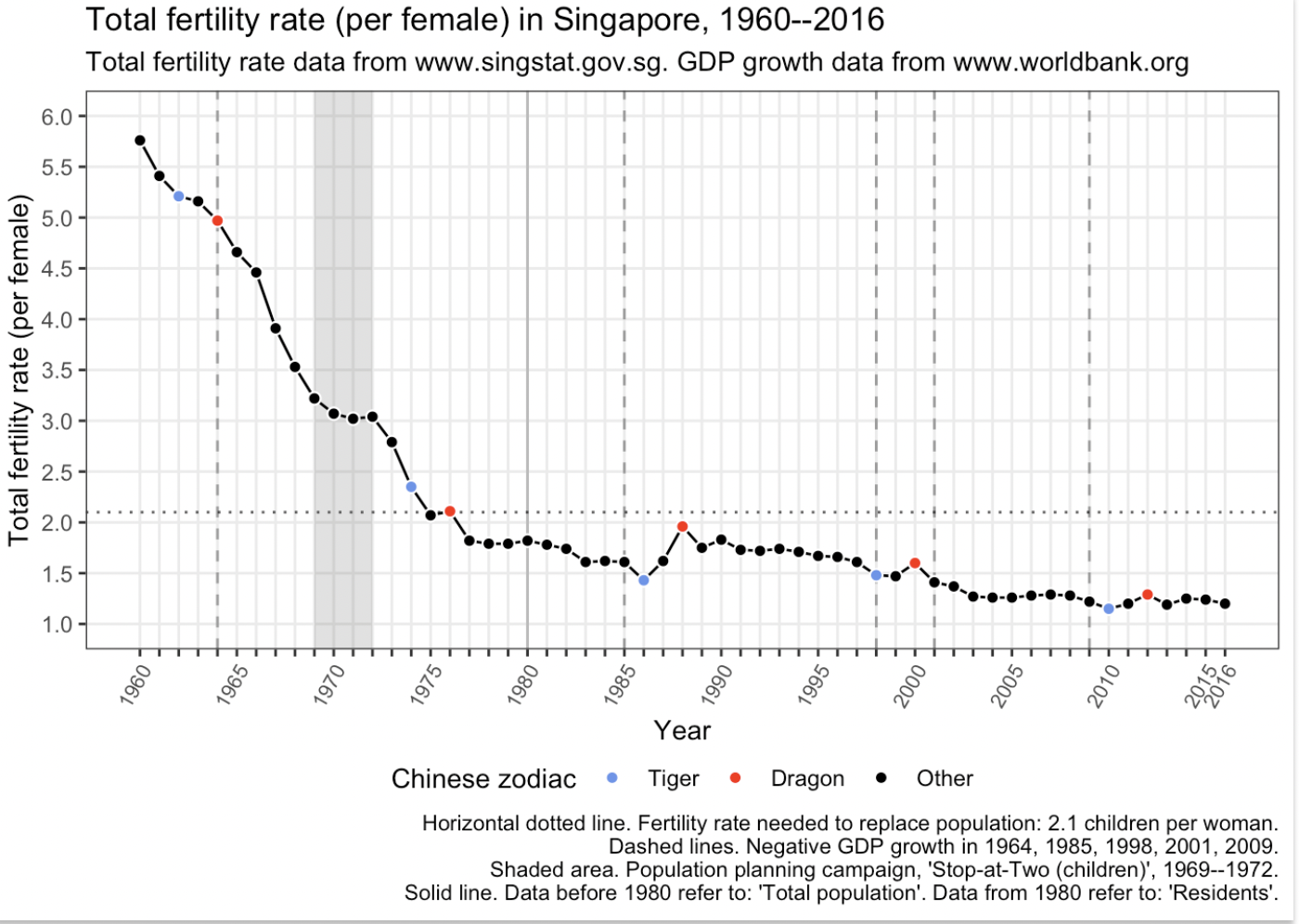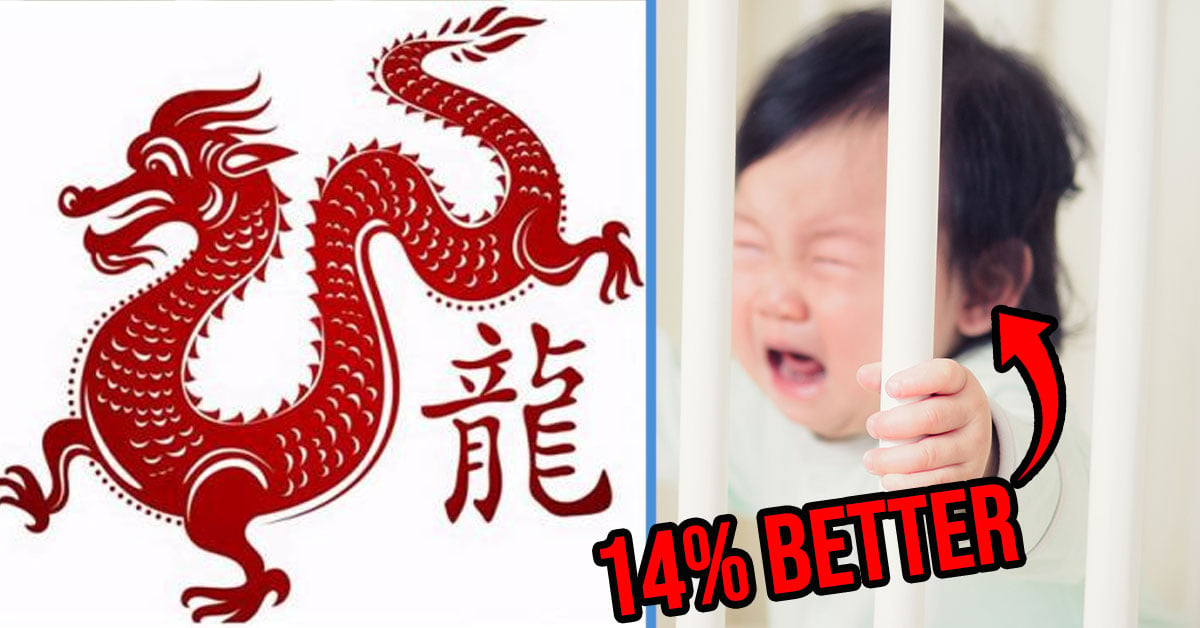If you took Chinese lesson as a kid, you must have heard the saying “望子成龍“, or the desire for one’s child to become a dragon. It seems that most Chinese parents take the phrase extremely literally, as more babies continue to be born on average in Singapore during the Year of the Dragon.
This begs the question: Why?
Before that, let’s look at some numbers lest you think I’m making this up.
Be Expected to See A Spike in 2024’s Birth Rate After CNY
The particular “baby boom” in the Year of the Dragon is a phenomenon that continues to take place every twelve years in countries with a large Chinese population, with Singapore being one of them.
This phenomenon is best explained in the form of statistics and graphs.

As you can see, while Singapore continues to see a drastic fall in its fertility rate, Dragon Babies continue to be the anomaly that causes the number of births to spike, as highlighted in the red dots.
Now, with the numbers out, the next question is…are Dragon Babies really better?
Dragon Babies Outperform Their Peers
The phenomenon of Dragon Babies does not only extend to a spike in birth rates. In fact, those born in the Year of the Dragon tend to inexplicably have more successful careers than their peers.
I am not just saying this as a child who’s been living in the shadow of her Dragon father for two decades (ouch).
This trend is backed up with statistics showing that children who are born in the Year of the Dragon are 14% more likely to have qualifications like a bachelor’s degree or higher.
Yes, I kid you not.
That is based on a study done in China.
However, such success may also be counterproductive, as more Dragon Babies have to duke it out amongst fellow Dragons amongst increased competition to secure entry into certain universities.
But why exactly is this the case? Are people born in the Year of the Dragon the “chosen ones” blessed with the power of the 7 Dragon Balls?
No; researchers concluded that it’s due to higher expectations from their parents.
The studies show that the Pygmalion effect may have something to do with it.
To put it simply, Dragon babies have unwittingly followed a self-fulfilling prophecy laid before them since birth.
The Pygmalion effect occurs when the expectations placed upon us subtly influence our behaviour, which in turn creates outcomes which subtly follow these expectations.
According to the National Bureau of of Economic Research, researchers also found that parents of those born in the Year of the Dragon have consistently higher expectations for their children than do parents of children born in other years.
These parents are also found to invest more time, money and effort into their children’s success, which is sometimes accompanied with preferential treatment (like more pocket money and less chores) to ensure that they can better focus on their academic responsibilities.
These high expectations thus set the bar for Dragon Babies to follow, subtly moulding them into the star pupils and successful children that their parents want them to be.
Maybe a new saying should be coined this Lunar New Year: “Behind every successful Dragon Baby, lies an equally fierce Tiger Parent.”
You can also watch this video to understand this phenomenon better:



